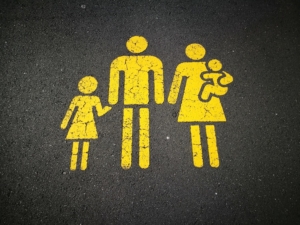How Family Counseling Can Change Your Family Dynamics
Families today face a wide range of difficulties and challenges that impact family dynamics. Families may deal with the effects of divorces, separations, deployments, moves, or identity crises. Families may also deal with a financial crisis, death of a loved one, medical issues, disabilities, or behavioral ups and downs. Newport Beach Christian Counseling offers compassionate support to help families navigate these challenges and strengthen their bonds.
 Families may need to address overarching issues of grief, anger, stress, or poor communication skills. It is definitive that all families will face obstacles of various kinds; however, it is important to note that your family does not have to deal with these roadblocks without the support and guidance of a counselor who can aid you in your family’s journey.
Families may need to address overarching issues of grief, anger, stress, or poor communication skills. It is definitive that all families will face obstacles of various kinds; however, it is important to note that your family does not have to deal with these roadblocks without the support and guidance of a counselor who can aid you in your family’s journey.
If one of your children is struggling with explosive anger outbursts, family therapy can help the child specifically as well as help the family determine how to best aid the child during their outbursts. The therapist will work to get to the root of the issue and determine the best way to help the child deal with and process their emotions.
If one of your family members is battling severe anxiety, family counseling can help the person struggling with anxiety as well as educating the entire family on how to help identify and deal with anxious behaviors.
If your family dynamics are impacted by the effects of stress because of finances or dealing with the loss of a loved one, family therapy can help you learn effective coping strategies to work on the betterment of your family’s emotional health.
Friday nights should be more about making memories together than avoiding one another because of underlying issues or avoiding conversation because you are unsure of what to say.
How Family Counseling Can Change Your Family Dynamics
Family counseling may be the pathway to establishing healthy communication.
Kevin Thompson said, “Communication thrives in healthy families. Unhealthy families have many topics that are off-limits.” For the betterment of the emotional and spiritual health of every family member, it is important to lay a strong foundation for communication skills. Every family member needs to know that their family conversations are a safe place.
 They need a safety net, a place of trust, a place to ease anxiety and make their feelings known. Children need a place to ask questions because the world will fill their minds with many thoughts and feelings that they are unsure how to process. Adults need communication with their spouse where they can make their feelings of depression or anxiety known without feeling like a failure.
They need a safety net, a place of trust, a place to ease anxiety and make their feelings known. Children need a place to ask questions because the world will fill their minds with many thoughts and feelings that they are unsure how to process. Adults need communication with their spouse where they can make their feelings of depression or anxiety known without feeling like a failure.
Family therapy can address family dynamics and ways to improve communication without judgment. Every individual, marriage, and family can improve in this area; it is not something you need to feel like a failure in if your communication is suffering or at a halt. Does everyone feel heard? Does everyone understand how to communicate without immediate judgment? Is everyone given the opportunity to voice their opinion or ask a question?
Family therapists can also serve as a mediator if the issues are more resentment-driven or someone is simply having a difficult time knowing how to voice their feelings.
Family counseling may be the fresh start your family is desperately longing for.
Perhaps your marriage is on the rocks or you feel like you are not getting through to your teenager. Maybe your teenager is inwardly struggling to find themselves or is unsure of what their future should look like. Perhaps their college decisions or sports scholarships are weighing heavy on their shoulders.
Family counseling is a great opportunity to discuss important topics or past issues in a safe, judgmental free place. Sometimes people do not realize how quickly they begin talking over someone else or a child is unsure how to ask a parent for help because of the fear of disappointing them
Sometimes it is more about children aiming to make their parents proud and feeling uncertain of how to voice their struggles. It may be the peer pressures that weigh like a ton of bricks on their adolescent shoulders.
Family therapy can help your family determine how to walk alongside one another in the struggles of life when you feel like you are currently at very different phases of life.
Family counseling can deal with a variety of issues.
 If one person in the family is struggling, it impacts family dynamics and likely means that the entire family is functioning differently. Most of the time, we do not struggle during the initial spiral of emotions and crisis, but afterward when the initial wave of support has come and gone.
If one person in the family is struggling, it impacts family dynamics and likely means that the entire family is functioning differently. Most of the time, we do not struggle during the initial spiral of emotions and crisis, but afterward when the initial wave of support has come and gone.
A child struggling with peer pressure needs continued support. Someone battling anxiety and depression needs continued support. Someone battling struggles from their past, the loss of a loved one, or fear of the future needs more support than what one day can offer.
Family counseling can help family members at large address their struggles and involve the entire family in establishing a plan of continued support for the future. Jen Williamson said, “There is no right speed at which to process one’s healing. There is no one path that serves everyone all of the time. Not every answer is everyone’s answer.”
Every person processes, deals with, and copes differently. Family therapy can aid your family in establishing emotional first aid and help determine how your family can best function through phases of grief, anxiety, anger, poor communication, and withdrawal.
Family counseling can help children establish healthy coping skills for their future.
Not only is family counseling effective and helpful for the entire family at large, but it can also help children learn and establish healthy coping skills for today and in the days and years to come. Helping children establish healthy coping skills is first done by helping them realize it is healthy to be vulnerable and express their feelings and emotions.
It is not a weakness to ask for help. Children need to know that their home is a safe place – one where they can cry, laugh, sing, dance, ask for help, and dream gargantuan dreams.
One thing children in today’s society are longing for is a voice. They long for their voices to make waves and to make a difference. It is crucial to their development to help them understand this voice and the impact it can have. Our goal is for them to be world-changers who know that they can make a difference by doing the right thing.
 Today, you can begin your family’s journey to health by:
Today, you can begin your family’s journey to health by:
- Scheduling a family therapy session. Today is your day! It can be a place of reset, rest, and resolutions. Your heart may need to hear “you are not alone.”
- Ensure that your family is pursuing open and honest conversation. Start by sitting down as a family and just having an open conversation. Ask everyone how they are really doing. Do not accept “I am okay” as an answer.
Dig deeper. Ask your teen how school is going. What are their favorite/least favorite classes and why? Do they still enjoy the sport they work so hard at? Ask dad how work is going. The first step is to approach conversations out of love and compassion rather than judgment and feelings of failure.
The key to open communication is to check your tone and your heart. Are you empathic or harsh? Are you truly asking someone how their day was, or are you going through the motions and not really listening?
- Realize every family faces their fair share of setbacks and crises. Do not feel like your family is wrong or failing because of a personal or overall family setback or crisis. You are not alone in facing personal issues. You are not alone in dealing with financial crises, poor communication, staleness in marriage, or having a trying time conversating with teenagers.
- Get involved at church and have a strong support system. An often-overlooked support system is right under our noses in the churches we attend on Sunday mornings. Ann Landers said it so well, “Church is not a museum for saints, but rather a hospital for sinners.”
It is so easy to feel like we must put on a façade at church. We feel we cannot ask for help or admit areas in our lives that are not picture-perfect. We can truly begin to experience a breakthrough when we put on fewer facades and more true faces.
1 Thessalonians 5:11 reminds us, “Therefore encourage one another and build each other up.” The church should be that place where we can come together like a village to help one another through the periods of darkness and ride along together during the periods of bountiful and immeasurable blessings. That is what family is really about.
Christian Counseling to Improve Family Relationships
If you’re looking to improve the family dynamics in your home, feel free to contact me or one of the other counselors at Newport Beach Christian Counseling . We would be happy to meet with you and your family to strengthen the bonds in your home.
“Family Watching the Sunset”, Courtesy of Jude Beck, Unsplash.com, CC0 License; “Family Crossing”, Courtesy of Sandy Millar, Unsplash.com, CC0 License; “On the Dunes”, Courtesy of Juan Cruz Mountford, Unsplash.com, CC0 License; “Family at the Beach”, Courtesy of Patricia Prudente, Unsplash.com, CC0 License

 Resilience after a rejection is not a trait only some people are blessed with. Dealing with rejection is a behavior that you can learn. It is how you identify and analyze your thoughts and emotions after rejection. It is learning how to use that hurt to mold and create your purpose by shifting your perspective.
Resilience after a rejection is not a trait only some people are blessed with. Dealing with rejection is a behavior that you can learn. It is how you identify and analyze your thoughts and emotions after rejection. It is learning how to use that hurt to mold and create your purpose by shifting your perspective. speak or acknowledge your presence. They may feel overwhelmed at work and take a quick break to scroll social media and inadvertently skip “liking” your post. Or, perhaps they are trying to manage all the small details for a social gathering and forget to personally invite you.
speak or acknowledge your presence. They may feel overwhelmed at work and take a quick break to scroll social media and inadvertently skip “liking” your post. Or, perhaps they are trying to manage all the small details for a social gathering and forget to personally invite you. Keeping the pain from rejection bottled up inside however is unhealthy and can lead to other long-term problems. You can feel the hurt, just don’t get lost in it. You don’t want the emotions to override your controlled behavior. Under the initial sadness, anger, or resentment of rejection is the hurt that needs to be addressed.
Keeping the pain from rejection bottled up inside however is unhealthy and can lead to other long-term problems. You can feel the hurt, just don’t get lost in it. You don’t want the emotions to override your controlled behavior. Under the initial sadness, anger, or resentment of rejection is the hurt that needs to be addressed. Allowing a situation to take the forefront in your mind can also exacerbate the pain and emotions toward the person or people involved. Anger, bitterness, and resentment can grow exponentially. The problem with allowing these emotions to grow is that they end up hurting you.
Allowing a situation to take the forefront in your mind can also exacerbate the pain and emotions toward the person or people involved. Anger, bitterness, and resentment can grow exponentially. The problem with allowing these emotions to grow is that they end up hurting you.